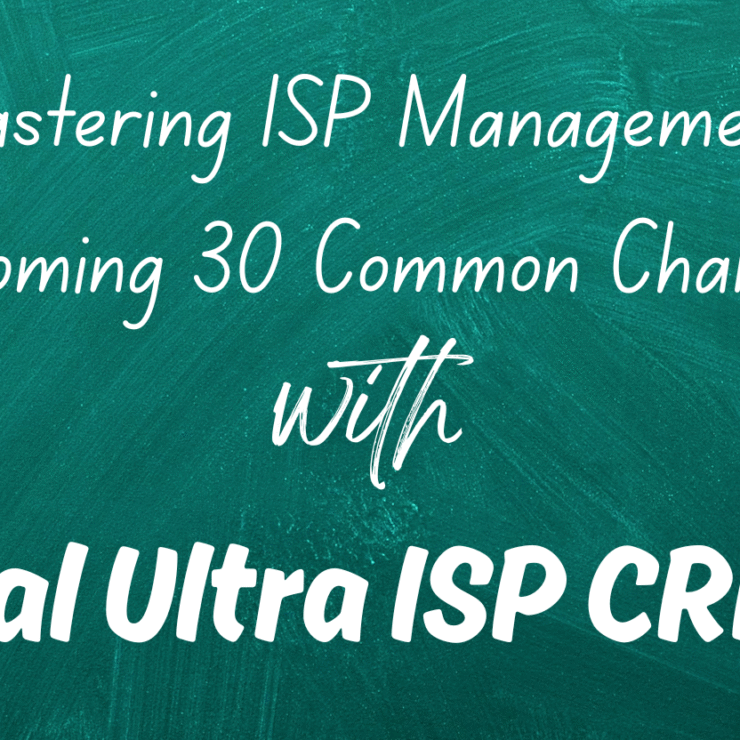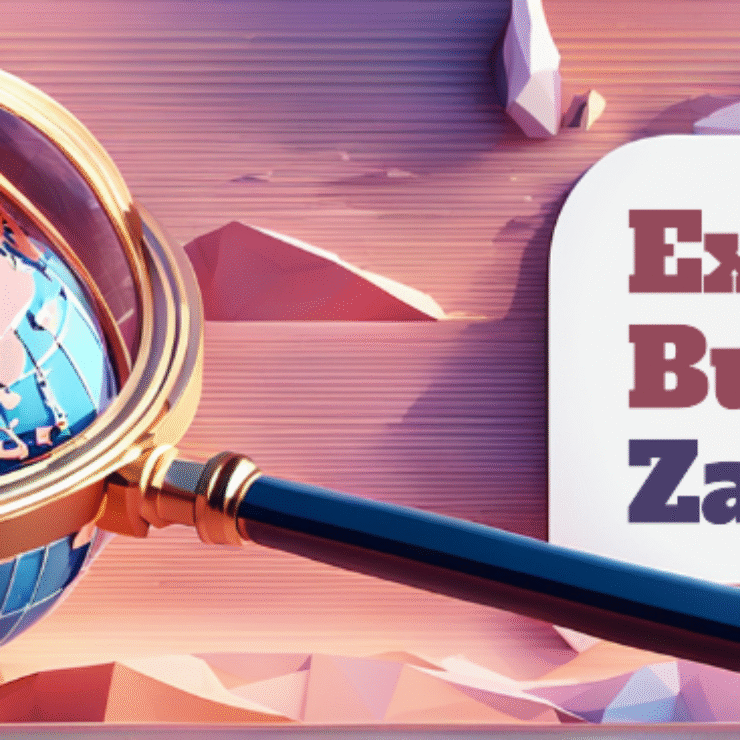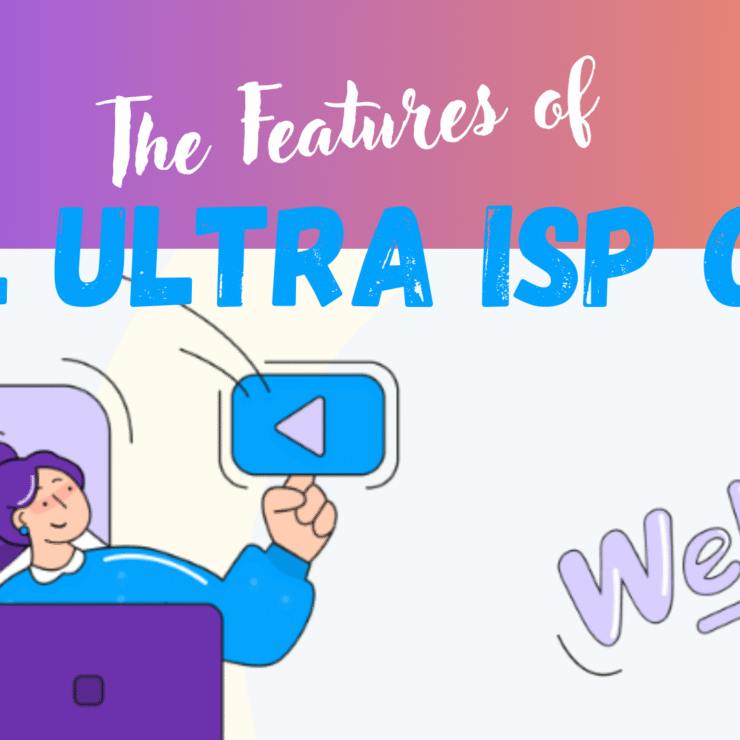In today’s interconnected digital world, businesses, especially Internet Service Providers (ISPs), rely on robust systems to manage customer relationships, streamline operations, and ensure secure network access. Customer Relationship Management (CRM) systems are central to these operations, acting as hubs for customer data, billing, and service management. However, a common challenge is the lack of API and RADIUS AAA integration in many CRM systems, leading to inefficiencies, data silos, and limited automation. The solution lies in adopting API and RADIUS AAA-ready CRM systems, such as Zal Ultra ISP CRM, which is designed to automate tasks, connect external tools, and manage network access seamlessly.
This blog post explores the problem of inadequate API and RADIUS AAA integration, its impact on businesses, and how solutions like Zal Ultra address these challenges. We’ll delve into the technical aspects of APIs and RADIUS AAA, highlight Zal Ultra’s capabilities, and provide actionable steps for implementation. By the end, you’ll understand why Zal Ultra and other API and RADIUS AAA-ready CRM systems are essential for modern businesses, particularly ISPs, aiming for efficiency and scalability.
Understanding the Problem: Lack of API and RADIUS AAA Integration
What is API Integration in CRM Systems?
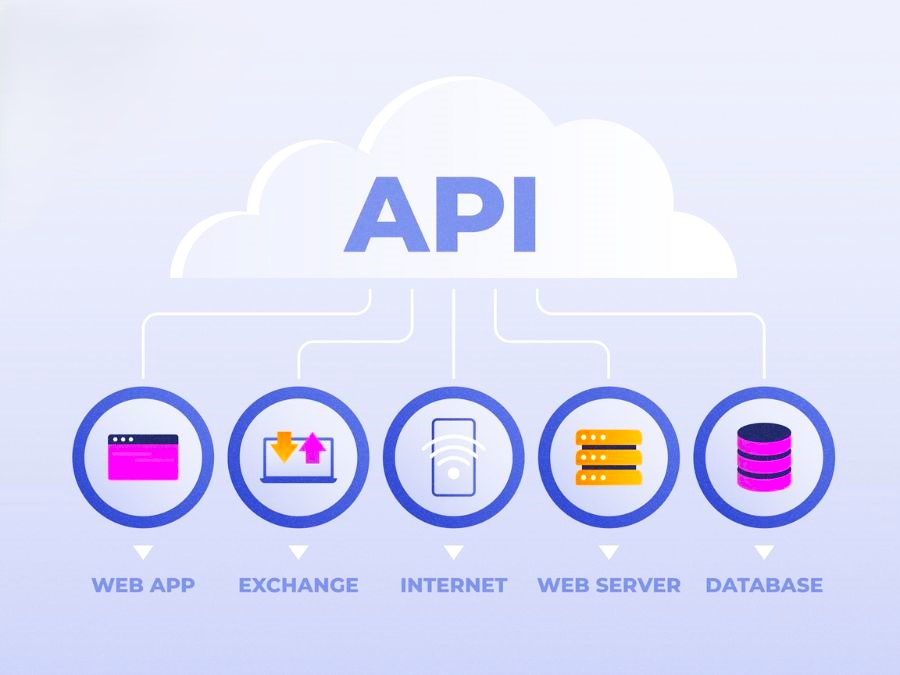
An Application Programming Interface (API) is a set of protocols that enables different software applications to communicate and share data. In CRM systems, APIs allow integration with tools like marketing platforms, billing systems, or support software, ensuring seamless data flow. Without robust API integration, businesses face data silos, where customer information remains isolated within the CRM, requiring manual data transfers that are prone to errors and inefficiencies.
For example, an ISP without API integration may struggle to sync customer data between the CRM and billing platforms, leading to delayed invoicing or inconsistent records. This lack of connectivity hinders automation, slows processes, and limits scalability.
What is RADIUS AAA and Its Role in CRM?
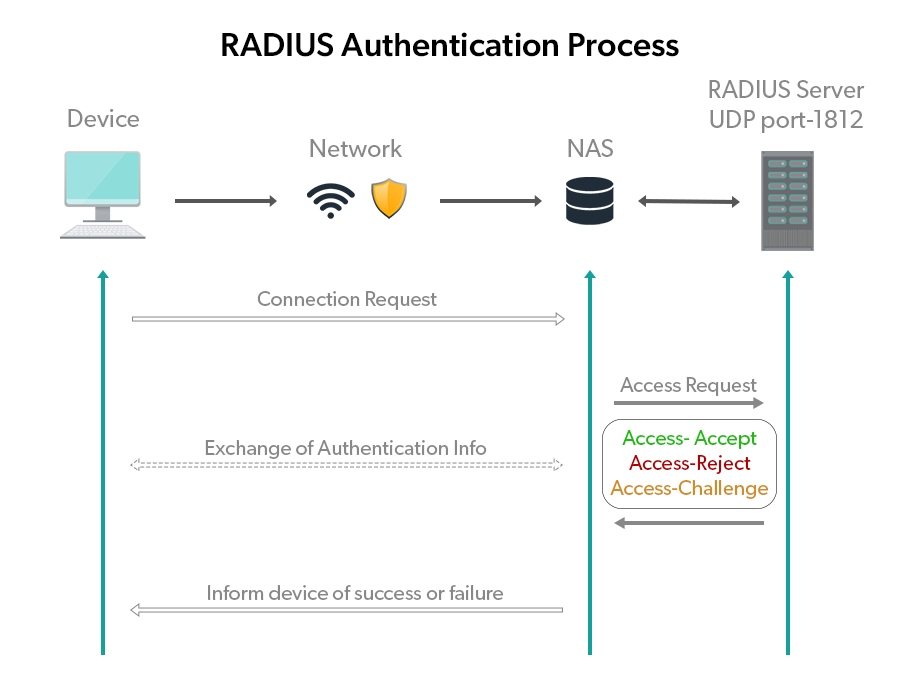
RADIUS (Remote Authentication Dial-In User Service) is a networking protocol that provides centralized Authentication, Authorization, and Accounting (AAA) for network access management. It is widely used in industries like telecommunications and ISPs to manage secure access to networks such as Wi-Fi, VPNs, or broadband services.
- Authentication: Verifies user or device identity.
- Authorization: Defines what authenticated users can access.
- Accounting: Tracks usage data, such as session duration or bandwidth, for billing or reporting.
Many CRM systems lack integration with RADIUS AAA servers, creating challenges for businesses that manage both customer data and network access. Without this integration, ISPs may face manual user provisioning, inconsistent access controls, and difficulties in aligning network usage with customer billing.
The Impact of the Lack of Integration
The absence of API and RADIUS AAA integration in CRM systems creates several issues:
- Operational Inefficiencies: Manual data transfers between systems waste time and increase error risks.
- Data Silos: Disconnected systems prevent a unified view of customer data, hindering personalized services.
- Security Vulnerabilities: Without RADIUS AAA integration, inconsistent access controls may lead to unauthorized network access.
- Limited Automation: Lack of APIs restricts automation of tasks like billing or user provisioning.
- Scalability Barriers: Non-integrated systems struggle to handle growing data volumes or complex workflows.
For instance, an ISP without RADIUS AAA integration may struggle to link customer billing with network usage, resulting in inaccurate invoices. Similarly, without API integration, syncing CRM data with marketing tools becomes cumbersome, limiting targeted campaigns.
The Solution: API and RADIUS AAA-Ready CRM Systems with Zal Ultra
To address these challenges, businesses should adopt CRM systems with robust API and RADIUS AAA integration, such as Zal Ultra ISP CRM. These systems enable automation, seamless connectivity, and secure network management, transforming operations for ISPs and similar industries. Let’s explore how these integrations work and why Zal Ultra stands out.
How API-Ready CRM Systems Work
API-ready CRM systems provide endpoints (e.g., REST APIs) that support Create, Read, Update, Delete (CRUD) operations, enabling integration with external tools like:
- Marketing platforms (e.g., Mailchimp for email campaigns).
- Billing systems (e.g., Stripe for payment processing).
- Support tools (e.g., Zendesk for ticketing).
APIs eliminate manual data entry, ensuring real-time data sync and automation. For example, when a customer updates their contact details in an e-commerce platform, the CRM can automatically reflect this change via API, ensuring consistency across systems.
How RADIUS AAA Integration Enhances CRM Systems
RADIUS AAA integration allows CRM systems to communicate with RADIUS servers, bridging customer data management with network access control. This is critical for ISPs managing broadband, Wi-Fi, or LTE networks. Key capabilities include:
- Automated User Provisioning: New customer profiles in the CRM trigger automatic user creation in the RADIUS server.
- Real-Time Usage Tracking: Network usage data (e.g., bandwidth) syncs with the CRM for accurate billing.
- Centralized Access Management: The CRM enforces authentication and authorization policies, ensuring secure network access.
- Accounting Integration: RADIUS accounting data integrates with CRM billing for streamlined invoicing.
Spotlight on Zal Ultra ISP CRM
Zal Ultra ISP CRM is a cloud-based, comprehensive solution designed specifically for ISPs, offering robust API and RADIUS AAA integration. It addresses the challenges of non-integrated systems with features tailored to ISP needs. Here’s how Zal Ultra excels:
- Seamless RADIUS AAA Integration:
- Supports Authentication, Authorization, and Accounting (AAA) for over 50+ Network Access Servers (NAS) vendors, including Mikrotik, Cisco, Juniper, pfSense, and vBNG, with full IPv6 support.
- Automates user provisioning, bandwidth management, and disconnection based on payment status or expiration dates.
- Provides real-time bandwidth monitoring with detailed graphs, enabling ISPs to track user activity and manage quotas effectively.
- Supports custom RADIUS attributes for group and user-level configurations, offering flexibility for diverse network setups.
- Powerful API Integration:
- Features a REST API for seamless integration with external systems like billing platforms (e.g., Stripe, PayPal), ticketing systems, and customer portals.
- Enables automation of tasks like invoice generation, payment processing, and customer notifications.
- Supports Mikrotik API for direct session management, allowing ISPs to adjust bandwidth or disconnect users programmatically.
- Facilitates custom application development, enabling ISPs to extend functionality for specific needs.
- Comprehensive ISP Management:
- Offers a captive portal for easy user login and authentication, enhancing customer experience.
- Includes automated billing and invoicing, supporting multiple payment gateways (e.g., PayPal, Stripe, Bkash) for streamlined revenue management.
- Provides reseller management with dedicated panels for franchises, dealers, and sub-dealers, enabling multi-branch operations.
- Features a ticketing system, SMS notifications, and detailed logs (e.g., activity, connection, login) for efficient customer support and monitoring.
- Scalability and Security:
- Scales from small ISPs to nationwide operations, with flexible pricing starting at $99 for 500 users.
- Offers robust security with protection against DDoS, SQL injection, and network attacks, plus daily backups for data safety.
- Cloud-based architecture eliminates the need for costly local servers or public IPs, ensuring cost efficiency and accessibility.
- User-Friendly and Supportive:
- Features a modern, intuitive interface with mobile compatibility, making it accessible for ISPs and customers.
- Provides 24/7 human support via Skype or WhatsApp, with comprehensive documentation and community resources.
- Regular updates with AI-powered enhancements ensure the system stays current with ISP needs.
Zal Ultra’s combination of RADIUS AAA and API integration makes it an ideal solution for ISPs facing the challenges of non-integrated systems. It streamlines customer onboarding, network management, and billing while ensuring security and scalability.
Benefits of API and RADIUS AAA-Ready CRM Systems
Adopting systems like Zal Ultra offers significant advantages:
- Automation: APIs automate tasks like billing, notifications, and data sync, reducing manual work and errors.
- Unified Data: APIs break down silos, providing a single source of truth for customer and network data.
- Enhanced Security: RADIUS AAA ensures robust authentication and access control, minimizing security risks.
- Scalability: Systems like Zal Ultra handle growing user bases and complex workflows, ideal for expanding ISPs.
- Improved Customer Experience: Real-time data sync and automation enable personalized services and faster support.
- Cost Efficiency: Automation and cloud-based solutions reduce operational costs, while accurate billing boosts revenue.
For example, an ISP using Zal Ultra can automate customer onboarding, sync bandwidth usage with billing, and manage reseller networks, all within a single platform, enhancing efficiency and customer satisfaction.
Practical Steps to Implement API and RADIUS AAA-Ready CRM Systems
To leverage solutions like Zal Ultra, businesses should follow these steps:
1. Assess Business Requirements
- API Needs: Identify tools (e.g., billing, marketing) requiring CRM integration. Ensure the CRM’s API (e.g., Zal Ultra’s REST API) supports these connections.
- RADIUS AAA Needs: Confirm the need for network access management and compatibility with RADIUS servers (e.g., FreeRADIUS, Aradial, or Zal Ultra’s built-in RADIUS support).
- Scalability and Security: Evaluate growth plans and security requirements, ensuring the CRM supports OAuth for APIs and RadSec for RADIUS.
2. Choose the Right CRM System
Select a CRM with robust API and RADIUS AAA integration. Options include:
- Zal Ultra ISP CRM: Ideal for ISPs, offering comprehensive RADIUS AAA and REST API support, with features like captive portals, real-time monitoring, and multi-NAS compatibility.
- Aradial: Supports RADIUS AAA and REST APIs for telecom and ISP billing, with advanced features like PCRF and VOIP integration.
- Salesforce: Offers a powerful REST API for general CRM integration, customizable for RADIUS AAA in specific scenarios.
- neuCRM: Provides RADIUS AAA and API support for ISPs, with features like Wi-Fi hotspot management and payment gateway integration.
Zal Ultra stands out for its ISP-specific features, affordability, and ease of setup, making it a top choice for addressing integration challenges.
3. Plan the Integration
- API Integration: Map data flows (e.g., syncing customer data with billing systems). Use tools like Postman to test Zal Ultra’s REST API endpoints.
- RADIUS AAA Integration: Configure the CRM to communicate with RADIUS servers (e.g., Zal Ultra’s support for Mikrotik, Cisco). Set up user provisioning and accounting sync.
- Security: Implement OAuth 2.0 for APIs and RadSec for RADIUS to ensure secure data exchanges.
4. Test and Monitor
- API Testing: Verify data sync between the CRM and external systems, testing CRUD operations for reliability.
- RADIUS AAA Testing: Simulate user authentication and monitor accounting data sync, ensuring accurate billing and access control.
- Monitoring: Use Zal Ultra’s real-time bandwidth graphs and logs to track performance and resolve issues.
5. Train Your Team
- Sales and Support Teams: Train on automated workflows, such as sending SMS notifications via Zal Ultra.
- IT Teams: Educate on managing RADIUS configurations and API integrations.
- End Users: Provide guides for using Zal Ultra’s captive portal and self-service features.
6. Maintain and Optimize
- API Updates: Monitor Zal Ultra’s API documentation for updates to maintain compatibility.
- Security Patches: Apply updates to address vulnerabilities like the Blast-RADIUS attack (CVE-2024-3596).
- Optimization: Refine workflows to leverage Zal Ultra’s AI-powered enhancements and reporting tools.
Real-World Examples of Zal Ultra in Action
Example 1: ISP Customer Onboarding
An ISP using Zal Ultra automates onboarding by:
- Creating a customer profile in the CRM, which triggers user provisioning in the RADIUS server via API.
- Syncing bandwidth usage with billing systems for real-time invoicing.
- Using the captive portal for seamless customer login, with SMS notifications for account updates.
This eliminates manual processes, ensures accurate billing, and enhances customer experience.
Example 2: Multi-Branch ISP Management
A nationwide ISP uses Zal Ultra to manage multiple branches:
- Reseller panels allow franchises to manage their customers while the admin retains oversight.
- RADIUS AAA integration ensures secure access across branches, with real-time usage tracking.
- APIs sync data with payment gateways, enabling automated invoicing and payment processing.
This setup streamlines operations and supports scalability.
Challenges and Considerations
- Complexity: Integrating APIs and RADIUS requires technical expertise. Zal Ultra’s support team and documentation simplify this process.
- Security: Use secure protocols (e.g., TLS, RadSec) and regular updates to protect data.
- Cost: While Zal Ultra is affordable (starting at $99 for 500 users), budget for customization if needed (minimum $1000).
- Maintenance: Regular updates ensure compatibility and performance, supported by Zal Ultra’s community and 24/7 support.
Closure
The lack of API and RADIUS AAA integration in CRM systems creates inefficiencies, data silos, and security risks, particularly for ISPs. Zal Ultra ISP CRM addresses these challenges with robust API and RADIUS AAA integration, offering automation, scalability, and secure network management. Its features, like real-time bandwidth monitoring, captive portals, and multi-NAS support, make it a standout solution for ISPs. By adopting Zal Ultra or similar systems, businesses can streamline operations, enhance customer experiences, and drive growth.
Invest in Zal Ultra ISP CRM today to overcome integration challenges and build a connected, efficient business ecosystem.


